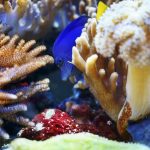The liver is often considered as your body’s natural detoxifier. It’s continuously working to cleanse and filter the blood, ridding the body of harmful toxins. However, the modern diet, combined with exposure to environmental pollutants and stress, can overburden this essential organ. That’s why incorporating specific foods into your diet that support liver detoxification can be extremely advantageous for your health. This article will explore the benefits of these foods and how they support the liver’s detoxification pathways.
Understanding the Liver’s Detoxification Pathways
The liver’s detoxification process involves two distinct phases: Phase 1 and Phase 2. In Phase 1, enzymes in the liver, primarily from the cytochrome P450 family, neutralize harmful substances by transforming them into less toxic byproducts. Phase 2, also known as the conjugation phase, involves attaching these transformed toxins to other molecules, which make them water-soluble and therefore easy to excrete through urine or bile.
In the same genre : What Are the Implications of Virtual Reality on Postoperative Pain Management?
Both phases must operate effectively for successful detoxification. However, an imbalance or impairment in these phases can lead to the accumulation of toxins, potentially resulting in adverse health effects. Therefore, it’s imperative to consume foods that support both phases of liver detoxification.
Phase 1: Foods That Aid in Enzyme Production
The efficiency of Phase 1 detoxification largely relies on the availability of necessary enzymes. These enzymes are protein molecules that accelerate the chemical reactions involved in detoxification. Some foods are rich in essential nutrients that aid in enzyme production.
Have you seen this : What Are the Long-Term Physical Health Effects of Working Night Shifts in Healthcare?
Cruciferous Vegetables
Cruciferous vegetables, such as broccoli, cauliflower, Brussels sprouts, and cabbage, are renowned for their health benefits. They contain sulfur compounds, which studies show can enhance the production of detoxification enzymes. A study published in the Journal of Nutrition indicates that these sulfur compounds increase the activity of Phase 1 enzymes, facilitating the neutralization of toxins.
Citrus Fruits
Citrus fruits like lemons, oranges, and grapefruits are notable sources of vitamin C, a potent antioxidant that aids in combating oxidative stress resulting from Phase 1 detoxification. Moreover, these fruits are rich in flavonoids that can stimulate the production of detoxifying enzymes.
Phase 2: Foods That Support Conjugation
Phase 2 detoxification, or conjugation, is the process of attaching toxins to other compounds, making them water-soluble and easy to remove from the body. Certain foods are rich in compounds that support this process.
Leafy Greens
Leafy greens, such as spinach, kale, and Swiss chard, are loaded with glutathione – a critical molecule required for Phase 2 detoxification. Glutathione binds with toxins during the conjugation process, making them less harmful and easier to excrete.
Onions and Garlic
Both onions and garlic are rich in sulfur-containing compounds, which are essential for Phase 2 detoxification. These compounds can help with the conjugation process, further supporting the liver’s ability to detoxify substances.
How Tea Can Support Liver Detoxification
In addition to food, certain beverages like tea can also aid in liver detoxification. Various types of tea contain compounds that can promote the activities of both Phase 1 and Phase 2 detoxification.
Green Tea
Green tea is rich in a group of antioxidants known as catechins. Epigallocatechin gallate (EGCG), the most abundant catechin in green tea, has been shown in clinical studies to stimulate the production of detoxification enzymes. This helps enhance the liver’s capacity to neutralize harmful substances.
Dandelion Tea
Dandelion root extract, found in dandelion tea, has been used for centuries as a natural remedy for liver disorders. Research indicates that this extract can boost the functioning of Phase 2 enzymes, thus improving the liver’s ability to detoxify the body.
While no food or drink can completely cleanse your body of harmful substances, a balanced diet rich in certain foods and beverages can support liver function. Incorporating a variety of these detoxification-promoting foods into your diet can support the liver’s critical detoxification pathways, helping maintain overall health and wellbeing. As always, it’s important to consult with a healthcare provider or registered dietitian before making any significant changes to your diet.
Role of Bioactive Compounds in Liver Detoxification
Apart from the nutrients found in food, there are numerous bioactive compounds that have been identified by Google Scholar, PubMed Crossref, NCBI NLM and Crossref Google to be beneficial for liver detoxification. These compounds can influence the function of CYP enzymes, stimulate the liver’s detoxification pathways or provide antioxidants to protect the liver from oxidative stress. Let’s take a look at a couple of examples.
Polyphenols
Polyphenols, found in high amounts in green and black tea, are bioactive compounds that have received considerable attention for their potential to promote liver health. These compounds, such as catechins and ellagic acid, have been found in various in vivo example studies to stimulate the liver’s detoxification enzymes, consequently supporting the Phase 1 detoxification pathway. Additionally, they exhibit antioxidant properties, combating the oxidative stress that can occur as a result of the detoxification process.
Sulforaphane
Sulforaphane is a bioactive compound found in cruciferous vegetables. It has shown promising results in protecting against liver disease by enhancing the liver’s detoxification pathways, specifically both Phase 1 and Phase 2. A study, available on NCBI NLM and Crossref Google showed that sulforaphane increased the production of detoxification enzymes in a human in vivo example, improving the liver’s ability to detoxify harmful substances.
Conclusion: The Importance of Diet in Liver Detoxification
In conclusion, diet plays a significant role in supporting liver detoxification. Consuming foods rich in essential nutrients and bioactive compounds can enhance the liver’s detoxification pathways, helping to rid the body of toxins more effectively. Cruciferous vegetables, citrus fruits, leafy greens, onions and garlic, as well as beverages like green and black tea, should be included in a balanced diet to support liver health.
At the same time, it’s essential to remember that no single food or drink can completely detoxify the body. Maintaining a balanced diet, staying hydrated, getting regular exercise, and avoiding harmful habits like excessive alcohol consumption are all important factors in promoting overall liver health.
Finally, although the information provided in this article is based on research from reputable sources, such as Google Scholar, Crossref Google, PubMed Crossref, and NCBI NLM, it is always advisable to consult with a healthcare provider or registered dietitian before making any drastic changes to your diet. By creating a plan that considers your individual health needs and lifestyle, you can more effectively support your liver’s detoxification pathways and maintain your overall health and wellbeing.
















